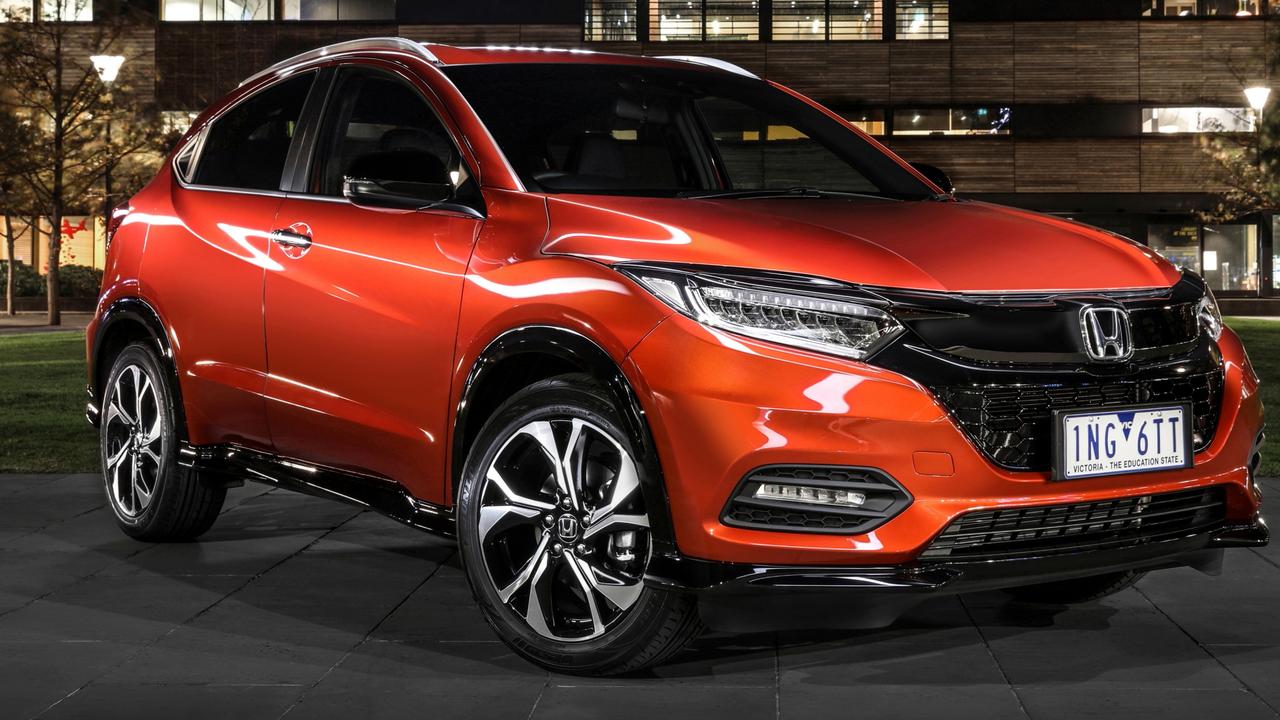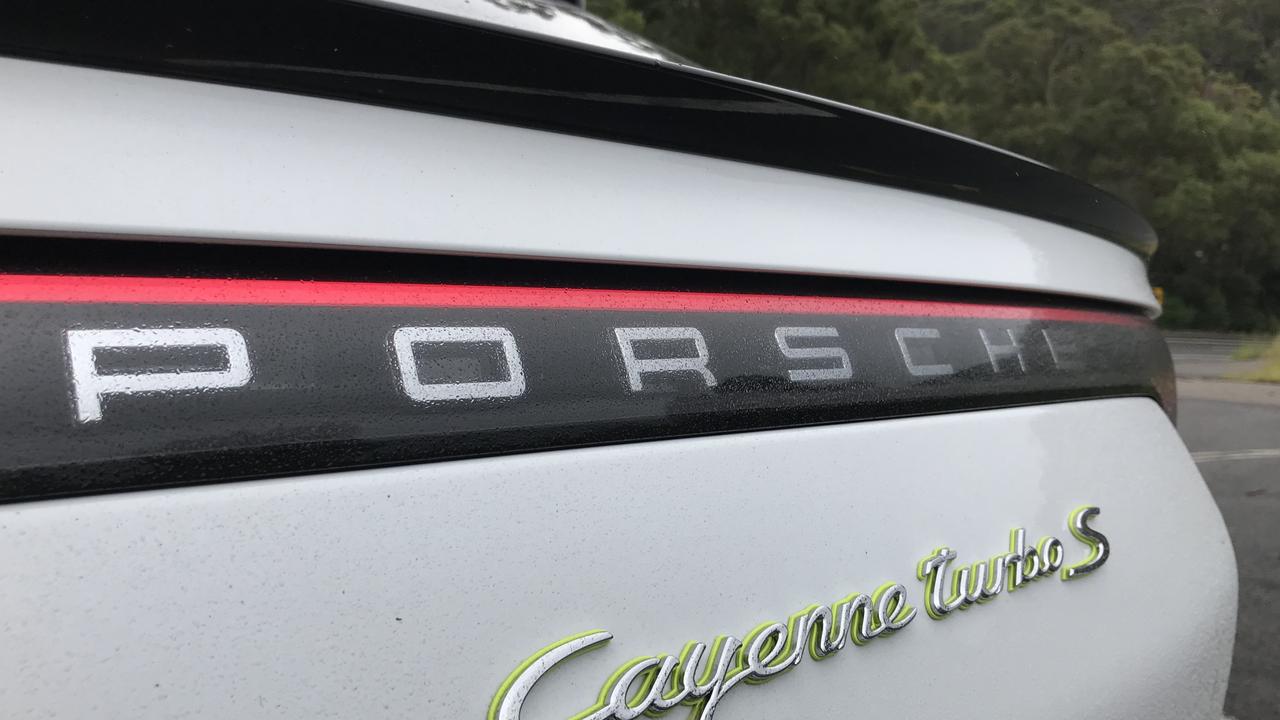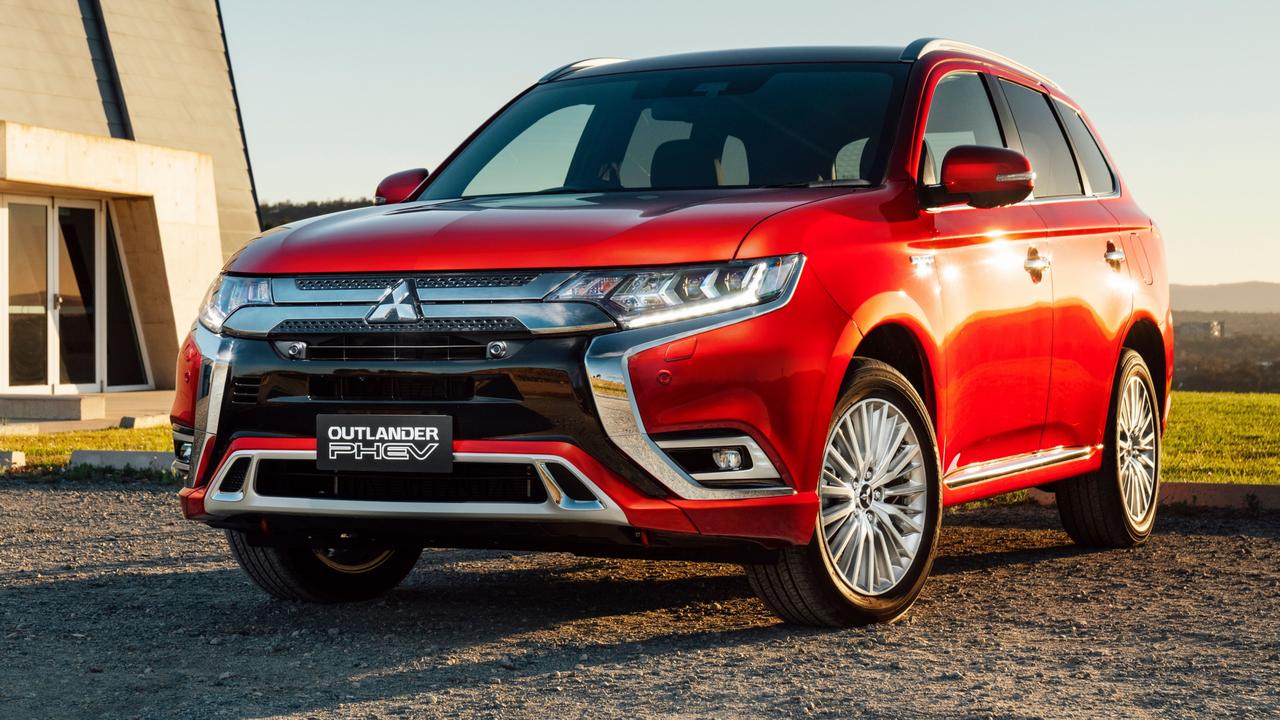2019 Chevrolet Camaro ZL1 review: Price, performance, specifications
V8-loving Holden fans were left in the lurch when the brand stopped building cars. But this America-sourced Camaro could be its best car yet, as long as you can afford it.
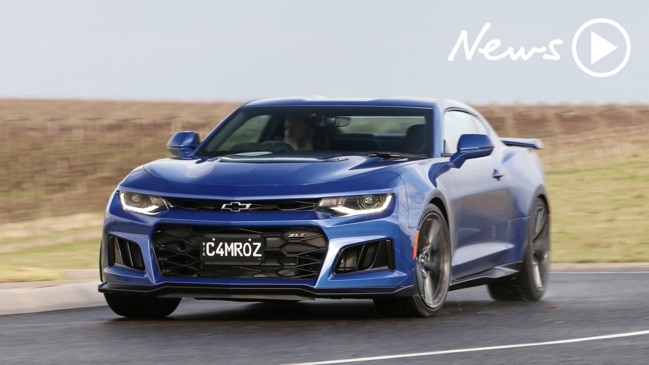
The supercar-sized tyres on the Chevrolet Camaro ZL1 give roughly double the average footprint but still can’t come close to containing the urge of its supercharged V8. The Continental rubber on our test car look fine but have seen 5500km of serious punishment, a fair chunk of it on tracks.
The tyres still have decent grip in turns but as the steering straightens it takes a trifling prod of the accelerator to free the 305mm wide rears from friction on C-grade country roads.
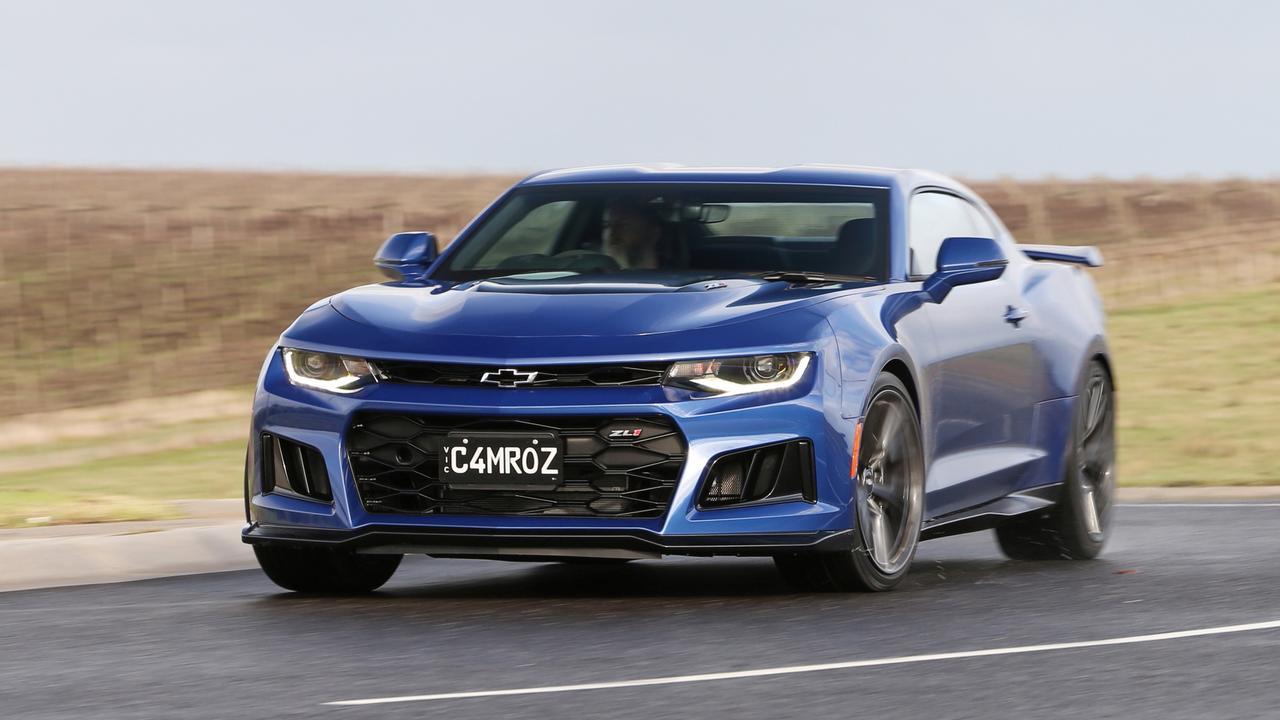
To be fair, that’s going to happen when you’re funnelling 477kW/881Nm into any set of rubber, including semi-slicks. It’s akin to using a power drill to torment a rubber band.
The Camaro is customarily seen as a rival to the Ford Mustang. In Australia, that holds true of the 339kW/617Nm 2SS Camaro also on sale in HSV showrooms, which loses the supercharger — and the six-figure price tag.
It is still $20K dearer than a ’Stang (Ford buyers pay less because the cars roll off the production line in right-hand drive, whereas HSV does a conversion at its Melbourne factory).
The $86,990 price for the 2SS is positively frugal against the ZL1’s $159,990 starting figure. That’s edging into BMW M4 and Mercedes-AMG C63 territory.
The default transmission on both Camaros is a six-speed manual; the preferred option is a 10-speed auto costing another $2200.
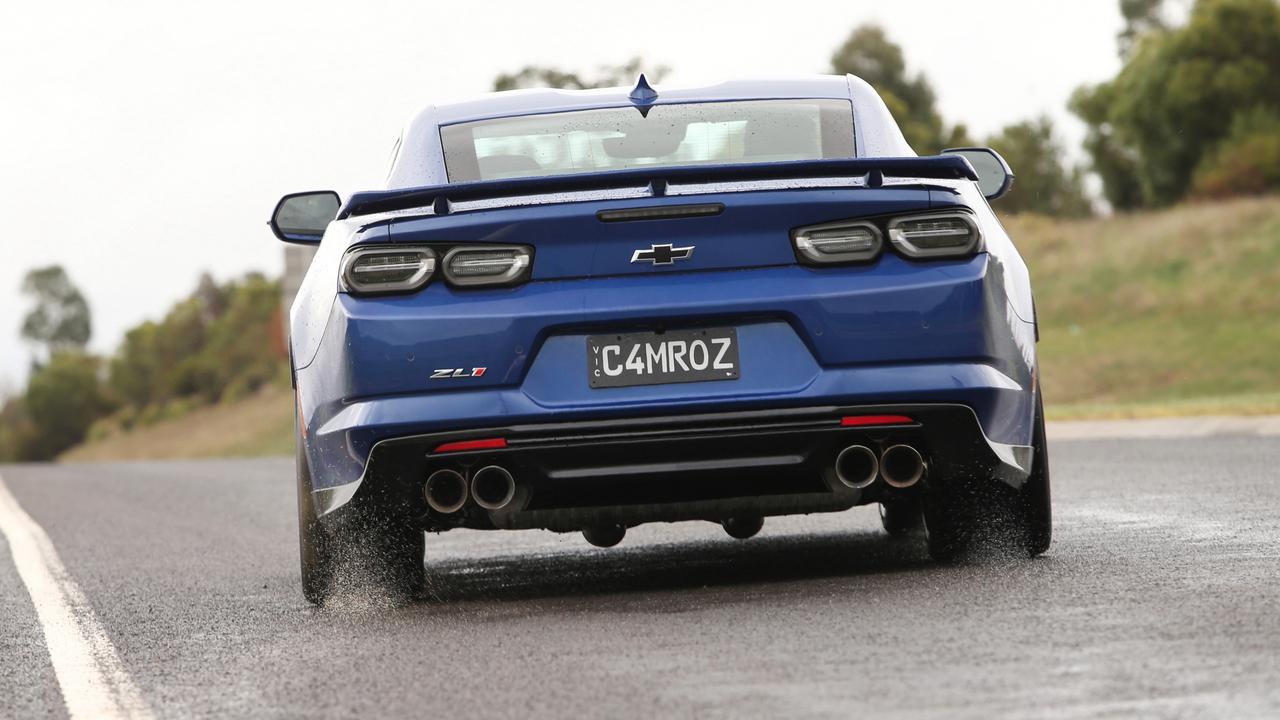
Interior gear is reasonable, as is the overall feel of the local conversion — more than drilling new holes in the firewall, HSV changes about 400 parts in a process that takes more than two weeks. The most obvious remnant is the centre console’s bottle holders on the right side, where they can obstruct the driver reaching for the gear selector.
There are power/heated/cooled front seats, eight-inch touchscreen with Chevy’s latest software, nine-speaker Bose audio, ambient interior lighting, reversing camera mirror, head-up display and dual-zone aircon.
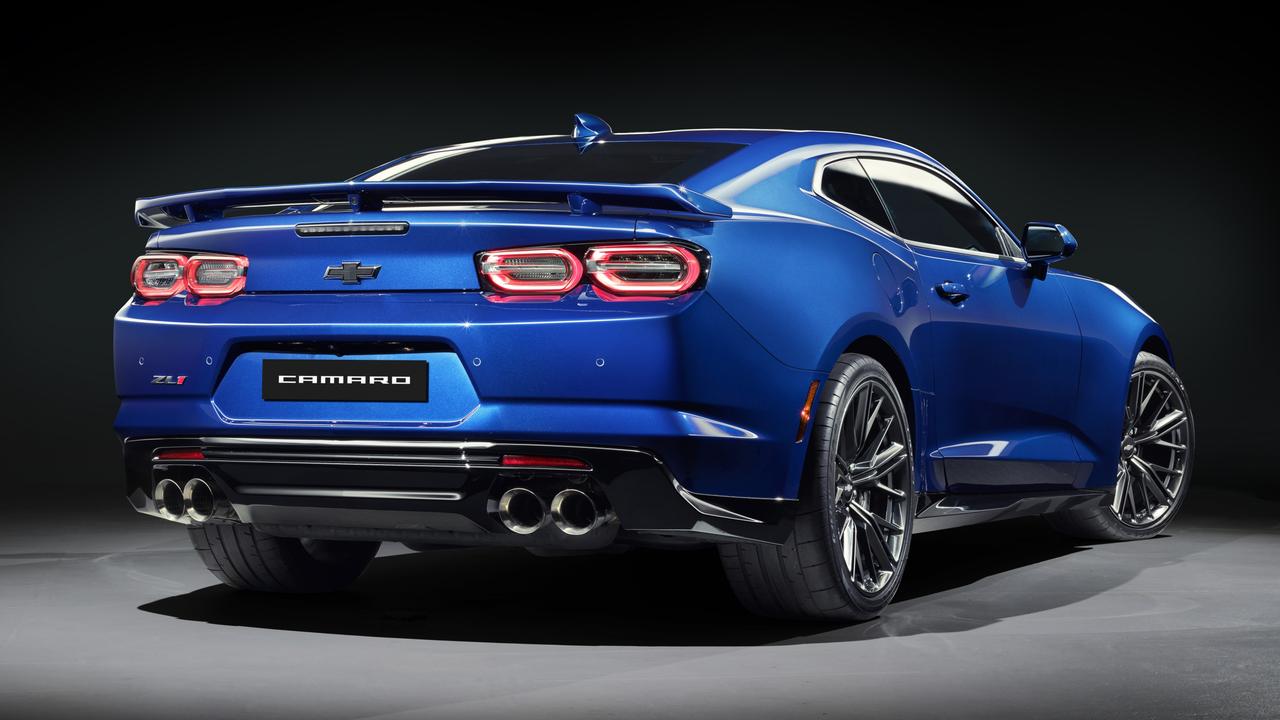
Beyond the engine, the ZL1 adds Recaro seats, adaptive dampers, electronic limited-slip diff, upgraded Brembo brakes and bi-modal exhaust.
The rear seats will accommodate kids. Shoving adults back there, even 170cm types like me, forces them into positions older muscles don’t like to maintain.
Of most concern to potential buyers is the fact the cars still don’t have autonomous emergency braking — it may not be an issue in and of itself but it is likely to hit resale values.
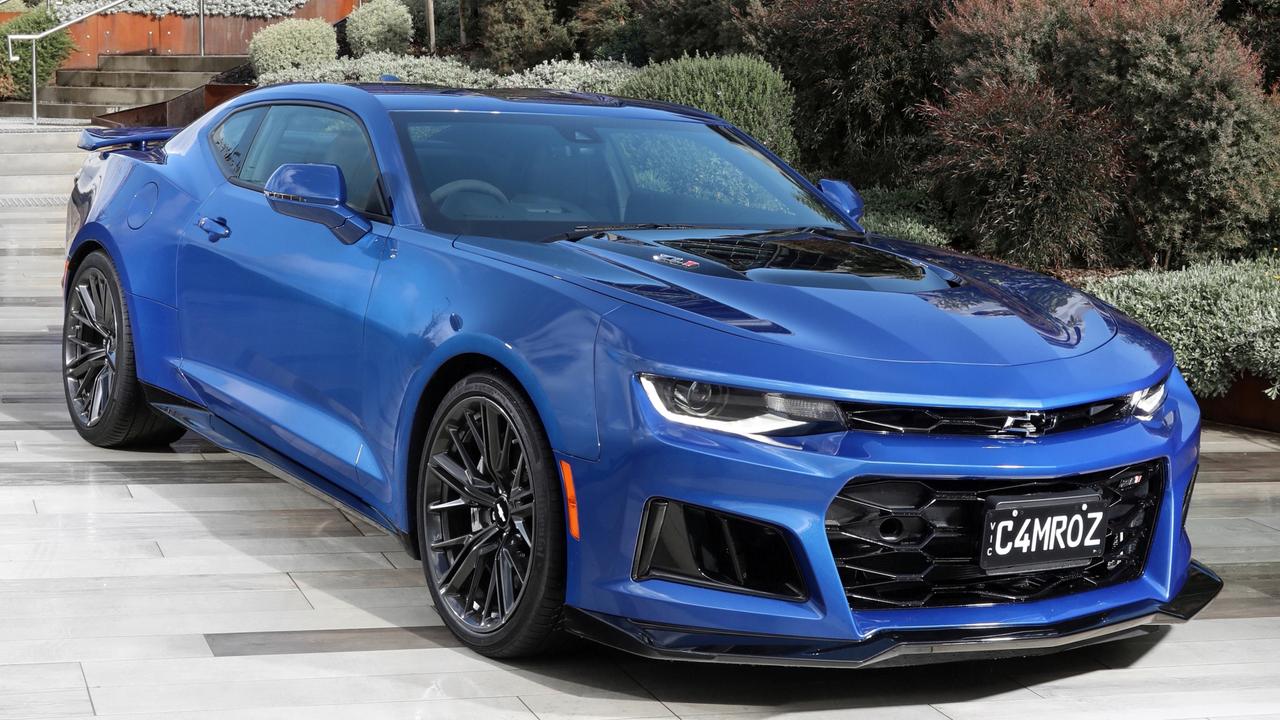
ON THE ROAD
Thumb the starter and the ZL1 fires into life with a solid, imposing grumble as befits a 6.2-litre V8. The supercharger kicks in soon after you start rolling and induces a mechanical whine to the otherwise sonorous soundtrack.
It is more purposeful than passionate and that entirely matches the character of this car as a potent sports car with grand tourer bias.
Try to launch the ZL1 from a standing start and your CO2 emissions will skyrocket (I’m not sure we can assess tyre smoke outputs as accurately as fuel use).
Chevy says the supercharged Camaro can do 0-100km/h in less than four seconds. That’s properly, scarily, quick but will require different tyres and a drag strip.
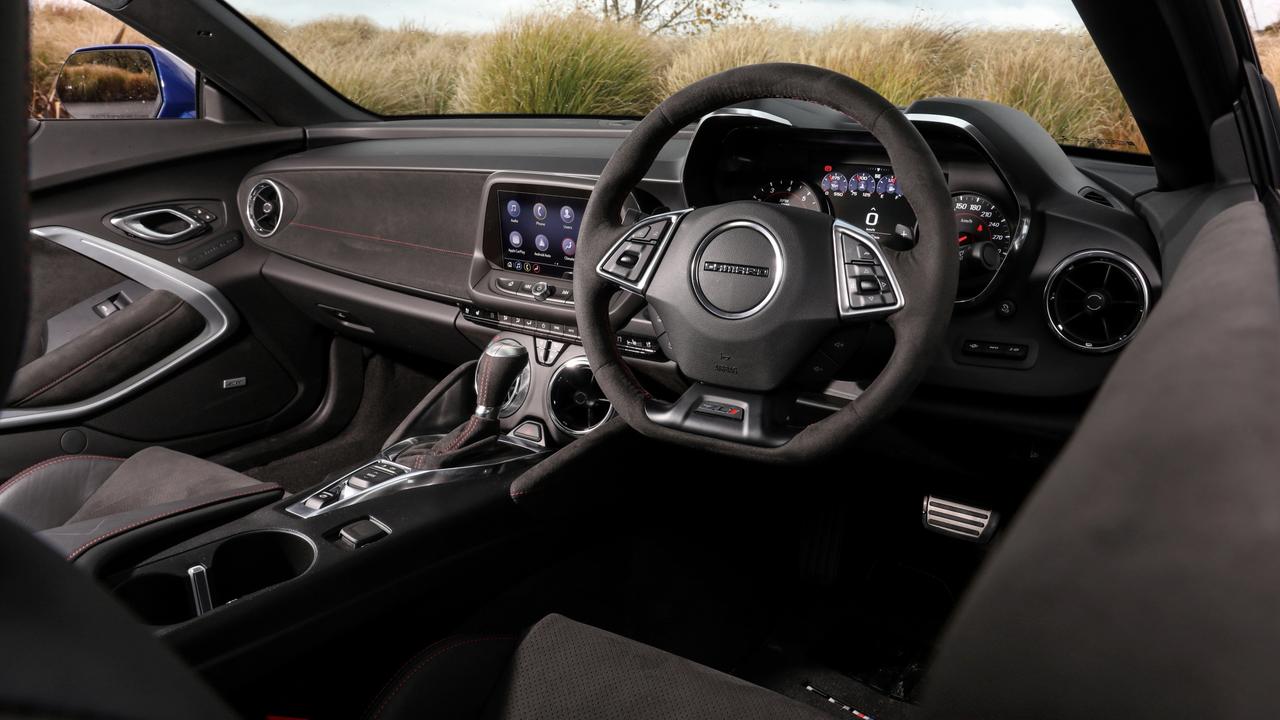
That perception of speed is emphasised by the low-slung front seats and high glass line, at the cost of restricted rearward vision.
The suede-wrapped steering wheel forgoes lightness for precision and means drivers can line the ZL1 up on the corner apex and lean on the chassis and adaptive suspension to keep it tracking true despite road ripples.
In truth, the ZL1 is marginally more impressive through the turns than it is in a straight line — and even compromised by abused rubber, it is speedo-blurring, heart-fluttering fast.
The stability calibration lets the back end wander slightly left or right without triggering the light on the driver’s display. It suits the Camaro’s character: slightly loose but always on the job.
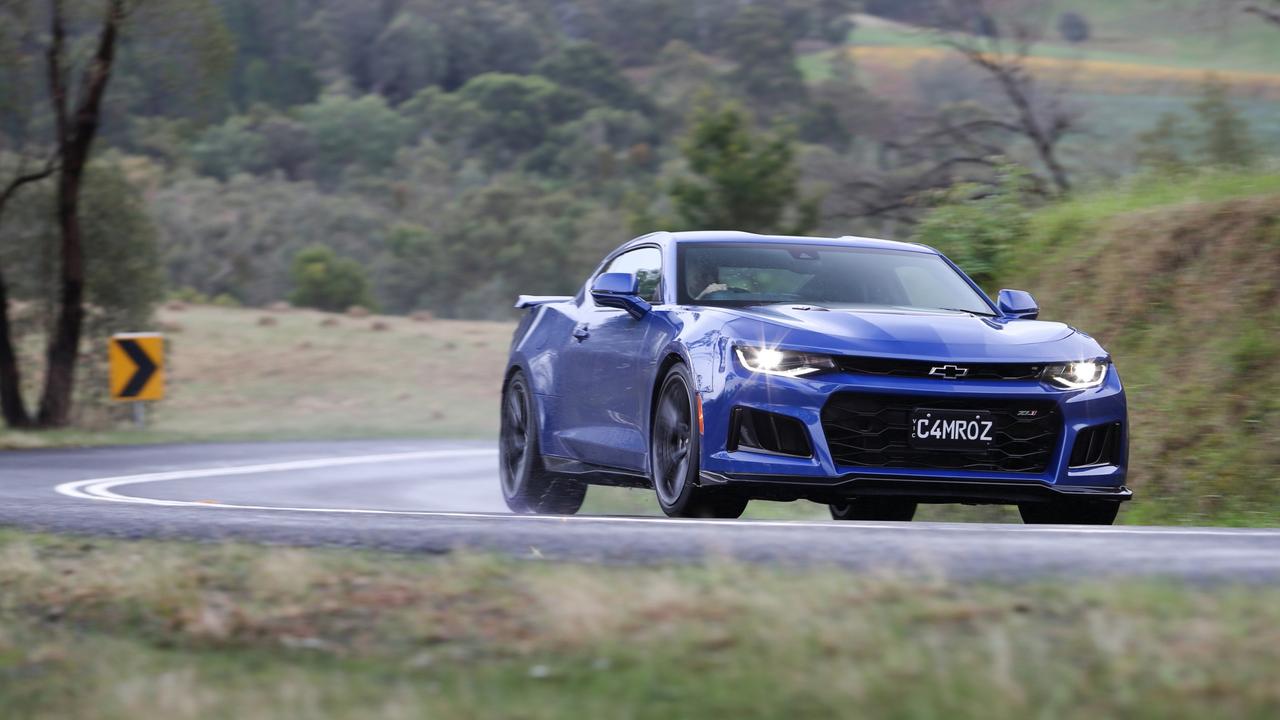
There is nothing loose about the stoppers. The ZL1’s six-caliper Brembo front brakes haul the 1800kg vehicle down with abrupt efficiency and resist fade after repeated (on-road) hits.
Around town the ZL1 makes for a compliant ride and, thanks to the sharp steering and the need for only minor accelerator inputs, a relaxed drive.
The biggest impediment to daily driving is the low front spoiler that can scrape on driveways if the driver isn’t cautious.
HEAD SAYS
For $160,000, I’ll take the refinement, safety and pace of similarly priced European competitors.
HEART SAYS
This is the best bang-for-your-buck sports car on sale in Australia if you demand supercar levels of go.
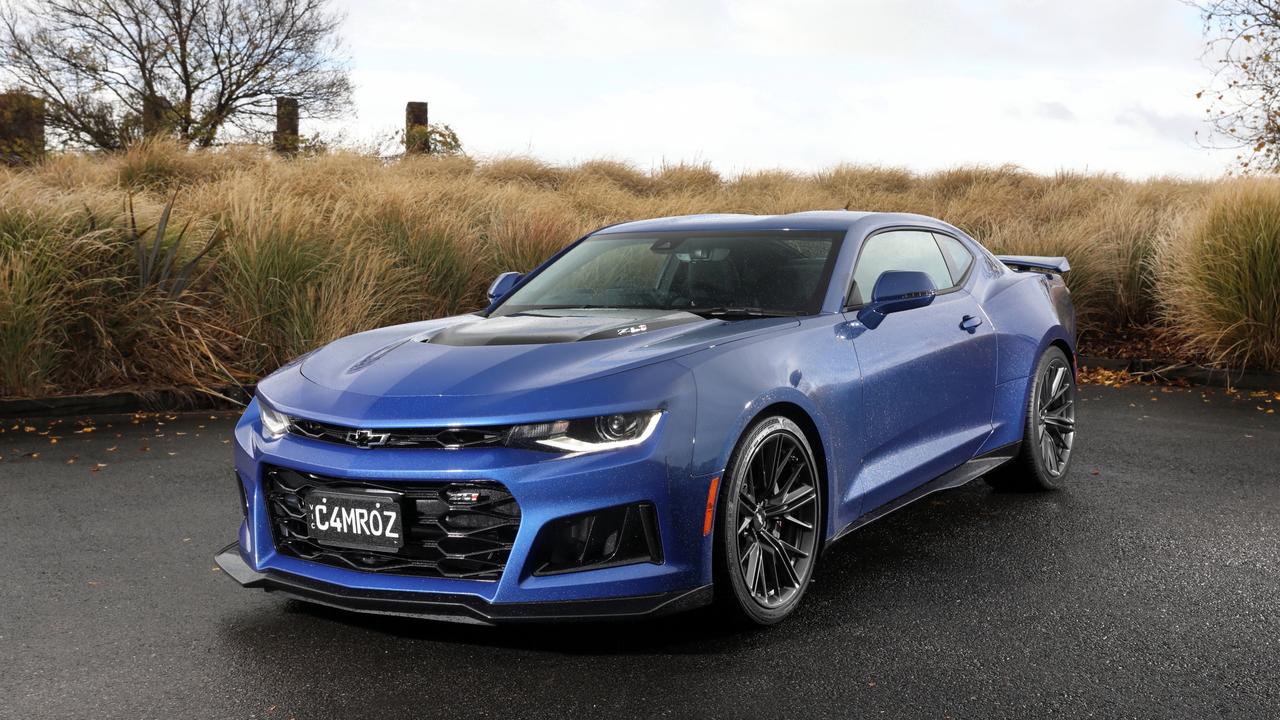
ALTERNATIVES
BMW M4 Competition,
$156,529 plus on-roads
The M4 is every bit as fast as the Camaro, despite producing “only” 331kW/550Nm. Can’t turn heads like the Chevy though.
Mercedes-AMG C63 S Coupe,
$167,640 plus on-roads
The 0-100km/h sprint time of 4.1 seconds and outputs of 375kW/700Nm make the AMG a viable — though less exclusive — alternative to the Camaro.
VERDICT
3 stars
HSV’s Camaro is a genuinely
decent car to drive but the price, short warranty and lack of standard safety count against it.
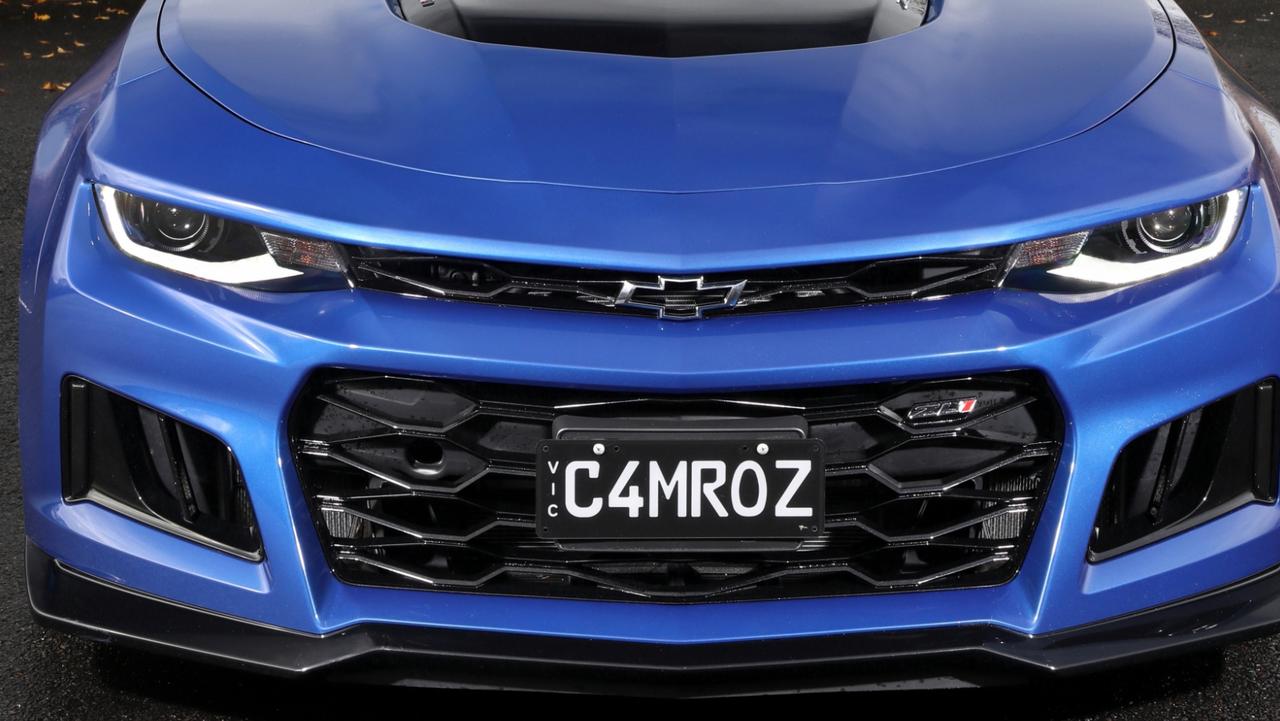
CHEVROLET ZL1 CAMARO
PRICE $159,990 plus on-roads
WARRANTY/SERVICE 3 years/100,000km, $2150 for 60,000km
ENGINE 6.2-litre V8 supercharged, 477kW/881Nm
SAFETY Not tested, 8 airbags 9no AEB, blind-spot warning, rear cross-traffic alert
THIRST 15.3L/100km
SPARE Repair kit
BOOT 257L

